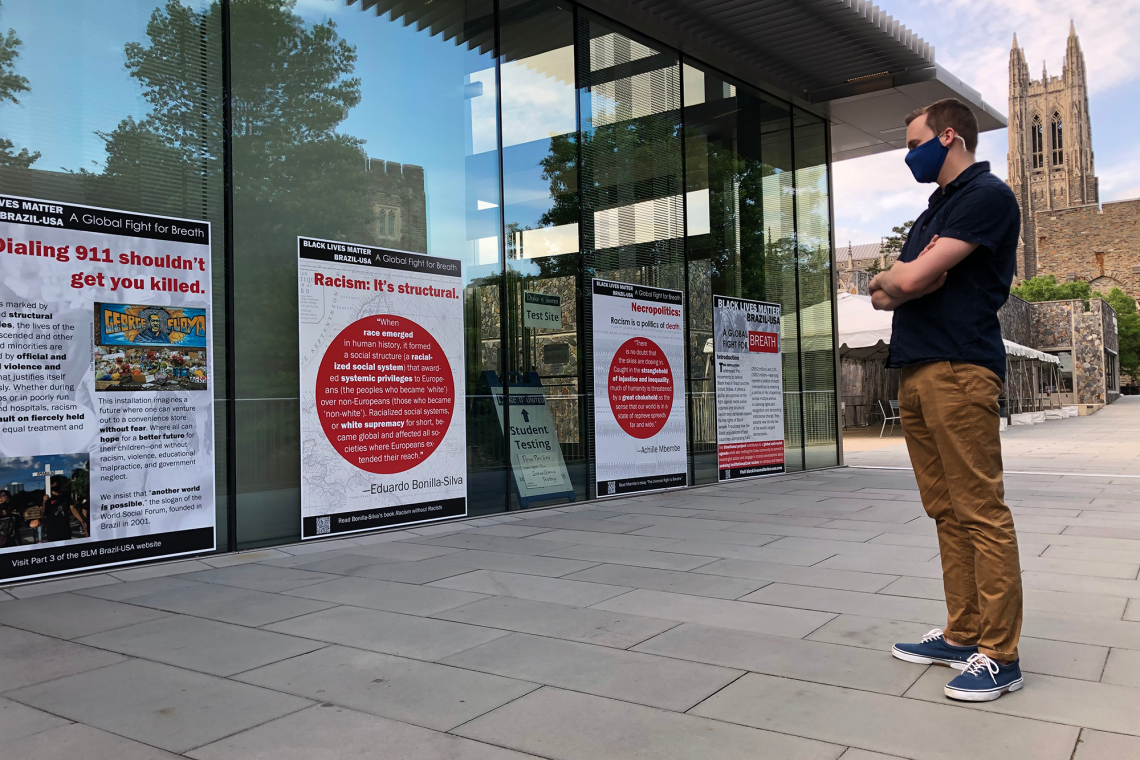
A new student installation outside Penn Pavilion focuses on the global fight to protect Black lives and create a society built on equity and respect for all lives.
Growing out of a spring 2020 Duke course, the Black Lives Matter: Brazil-USA installation, along with a website by the same name, focuses on police killings and the disparate impacts of COVID-19 on communities of color in both countries while also highlighting the rich history of Black-led multifaceted action seeking freedom.
Put on display for this past weekend’s graduation, the installation encourages the Duke community to deepen their antiracist commitments and carry them forward into their lives beyond Duke. A launch event for the website in October featured the students in the course and was attended by Duke’s President Vincent Price, Provost Sally Kornbluth, and Arts & Sciences Dean Valerie Ashby.
“We owe it to ourselves and the broader community to not only live these four years in the Duke bubble, but to go beyond the comforts of the classroom and campus life and even our country to make real change in the communities and spaces we occupy,” said sophomore Rahel Petros at the launch.
“Each of us must think more deeply, protest more loudly, and above all not lose the momentum towards change that has been building,” said graduate co-coordinator Courtney Crumpler, who completed her MFA in Dance this spring.
The installation will remain on display into the summer.
This project is co-sponsored by the Duke Department of History, Duke Brazil Initiative, Office of Global Affairs, the Office of the Dean of Trinity College of Arts and Sciences, the Office of the Dean of Social Sciences, and the Center for Latin American and Caribbean Studies.
The installation accentuates the international dimension of Black people’s struggles for rights and recognition by brokering a dialogue between two of the world’s largest democracies. “This is not just a display, a website, or an exhibit,” says Brazilian co-coordinator Marcelo Ramos, a doctoral candidate at the Universidade Federal Fluminense. “We are at a moment that demands international antiracist solidarity.”